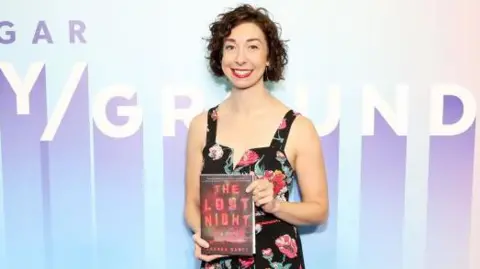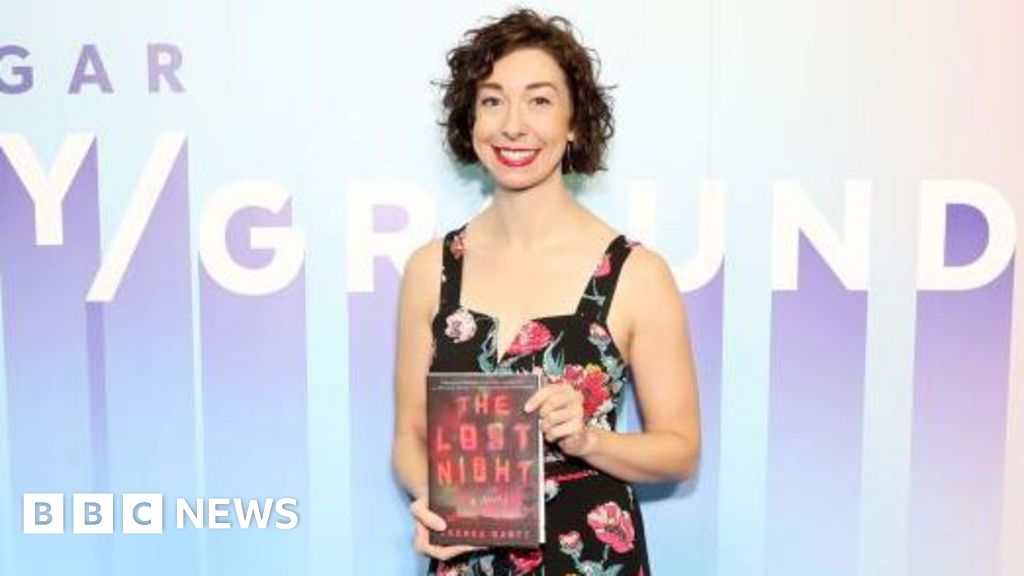BBC Information
 Getty Photos
Getty PhotosA US decide has dominated that utilizing books to coach synthetic intelligence (AI) software program just isn’t a violation of US copyright regulation.
The choice got here out of a lawsuit introduced final yr towards AI agency Anthropic by three authors, together with best-selling thriller thriller author Andrea Bartz, who accused it of stealing her work to coach its Claude AI mannequin and construct a multi-billion greenback enterprise.
In his ruling, Decide William Alsup mentioned Anthropic’s use of the authors’ books was “exceedingly transformative” and due to this fact allowed below US regulation.
However he rejected Anthropic’s request to dismiss the case, ruling the agency must stand trial over its use of pirated copies to construct its library of fabric.
Bringing the lawsuit alongside Ms Bartz, whose novels embody We Have been By no means Right here and The Final Ferry Out, had been non-fiction writers Charles Graeber, writer of The Good Nurse: A True Story of Medication, Insanity and Homicide and Kirk Wallace Johnson who wrote The Feather Thief.
Anthropic, a agency backed by Amazon and Google’s dad or mum firm, Alphabet, might resist $150,000 in damages per copyrighted work.
The agency holds greater than seven million pirated books in a “central library” in keeping with the decide.
The ruling is among the many first to weigh in on a query that’s the topic of quite a few authorized battles throughout the trade – how Giant Language Fashions (LLMs) can legitimately study from present materials.
“Like every reader aspiring to be a author, Anthropic’s LLMs skilled upon works, to not race forward and replicate or supplant them — however to show a tough nook and create one thing completely different,” Decide Alsup wrote.
“If this coaching course of moderately required making copies inside the LLM or in any other case, these copies had been engaged in a transformative use,” he mentioned.
He famous that the authors didn’t declare that the coaching led to “infringing knockoffs” with replicas of their works being generated for customers of the Claude instrument.
If that they had, he wrote, “this may be a unique case”.
Related authorized battles have emerged over the AI trade’s use of different media and content material, from journalistic articles to music and video.
This month, Disney and Common filed a lawsuit towards AI picture generator Midjourney, accusing it of piracy.
The BBC can be considering legal action over the unauthorised use of its content material.
In response to the authorized battles, some AI corporations have responded by putting offers with creators of the unique supplies, or their publishers, to license materials to be used.
Decide Alsup allowed Anthropic’s “honest use” defence, paving the best way for future authorized judgements.
Nonetheless, he mentioned Anthropic had violated the authors’ rights by saving pirated copies of their books as a part of a “central library of all of the books on the planet”.
In an announcement Anthropic mentioned it was happy by the decide’s recognition that its use of the works was transformative, however disagreed with the choice to carry a trial about how a number of the books had been obtained and used.
The corporate mentioned it remained assured in its case, and was evaluating its choices.
A lawyer for the authors declined to remark.

